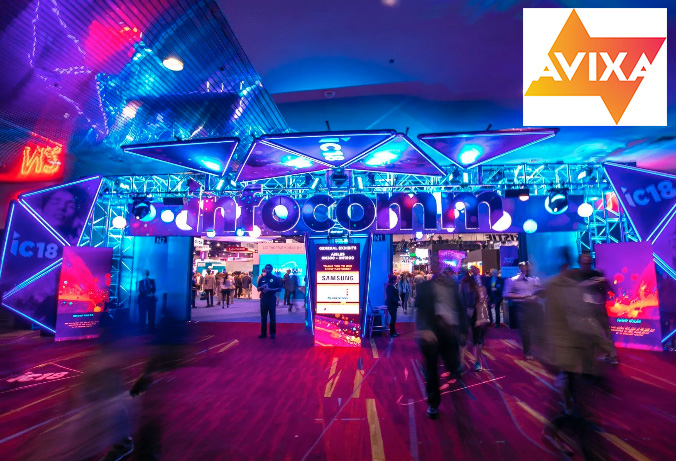
About five seconds into our phone call, before I even had a chance to explain myself, AVIXA CEO David Labuskes suddenly burst out: “Oh! I know why you called me!” This reaction caught me off-guard as we’d never spoken before. But when he went on to tell me why he thought I had called him, he was right on the money. It was a clue that he is a deeper thinker than many executives I reach out to, and as we spoke further, that impression only got stronger.
Another surprise was that Labuskes knew me (and Strata-gee) better than I realized…
Learn what the CEO of AVIXA shared with me in this EXCLUSIVE interview…
As I am sure most Strata-gee readers know, the Audiovisual and Integrated Experience Association (AVIXA) is one of the largest trade associations for commercial integrators. Its CEO is David Labuskes, an articulate, urbane, and engaging executive who has led AVIXA for more than ten years.
AVIXA Produces the InfoComm Trade Show for Commercial Integrators
AVIXA also produces a well-known trade show called InfoComm – an event that rotates between Las Vegas, NV and Orlando, FL every other year. Although I’ve never personally attended InfoComm, I’ve heard much about it from many integrators who engage in the commercial channel as well as residential.
InfoComm is said to be an extremely well-run event and is quite respected. Like CEDIA Expo, InfoComm offers exhibits, education, seminars, and manufacturer training. I have heard multiple times from integrators telling me they wish CEDIA Expo was as well run as InfoComm.
AVIXA & CEDIA Jointly Own the Integrated Systems Europe (ISE) Trade Show
AVIXA is also an equal partner with CEDIA in the Integrated Systems Europe event, which takes place every year in Barcelona, Spain. ISE is unique in that it serves both the residential and commercial channels, though that is a function of the fact that integrators in Europe generally participate in both channels. Here in the U.S., most integrators specialize in one or the other – with a small amount of crossover business which typically occurs on an incidental basis.
In any event, when I reached Labuskes on his cell phone, he was not in a position to chat with me at that moment, and asked me to reach out through more normal channels (i.e. via his communications staff) to set up an appointment for an interview later. Frankly, I thought he was brushing me off and we’d never actually connect again. But I was wrong, Labuskes honored his word and we set up an appointment for an interview a couple of weeks later.
My Exclusive Interview with David Labuskes, CEO of AVIXA
What follows below is a slightly edited version that has been edited for length and clarity.
Strata-gee – Dave, first off, thank you for agreeing to this interview. You guessed correctly that I was interested to learn your reaction to the news that Emerald Expositions has announced a new show called the Commercial Integrator Expo – an event geared to commercial integrators – that will take place alongside CEDIA Expo in 2023.
How and when did you first hear about this announcement?
LABUSKES – Emerald let me know. The day before the announcement, I spoke with both Jason McGraw (Emerald Group VP, CEDIA Expo & KBIS) and Brian Pagel (EVP, Emerald). [NOTE – Jason McGraw is a former AVIXA employee who was in charge of the InfoComm show for years, but left at the end of 2018. He joined Emerald in November 2020.]
Strata-gee – So what was your initial reaction to this rather significant news?
LABUSKES – Confusion…confusion on one level in terms of what need they feel they were addressing [with this new expo]? And then, obviously, I see it as a competitive move to InfoComm. As much as I am excited about, and recognize the value of, the commercial AV marketplace – I’m not naive to recognize that it’s an attractive marketplace to a for-profit show operator [like Emerald].
If the need of the industry were being met, then I’d be in complete support of it. [However,] I can’t draw a line between Emerald’s decision and the advantage for either resi or commercial AV. I can draw a line to an advantage, but it’s not for either of those two audiences.
Strata-gee – When Emerald presented this to you, did they explain their motivation behind the decision to launch a commercial show attached to CEDIA Expo?
LABUSKES – Jason and I worked together for almost ten years, and I met Brian the first month I was on the job [at AVIXA]. So we’ve all known each other for a very long time. It was out of professional courtesy that they called me. They knew that I wouldn’t be doing cartwheels from that conversation. But, you know, essentially what they were sharing with me is what they then shared with the rest of the world with their announcement document.
Strata-gee – Emerald’s announcement about their decision to offer a commercial show in conjunction with CEDIA Expo perplexed me a little. In their announcement, they said: “We’ve consulted with many of our customers, and they’ve expressed a need in the market for one event…” Emerald’s “customers” are the exhibitors and I spent the entire CEDIA Expo asking just about every exhibitor who participates in both resi and commercial channels if they were consulted by Emerald and did they support this single-show idea. I didn’t find a single one.
Do you get this feedback from your exhibitors that they’d like just one show that offers both resi and commercial gear?
LABUSKES – In a word…no. I don’t know what customers they spoke to that have expressed this need, I haven’t found any either. Emerald references much research and monitoring of a convergence…right? My research actually does not suggest that the trend that they are describing is the trend that’s most impactful to our industry. We see a significant expansion in commercial AV integration with the IT department, with the decision makers resting within the IT departments. We don’t see those decision makers making decisions about home offices.
There’s no question that hybrid work and remote work are clearly more prevalent now than they were pre-COVID. But much of that investment, according to our research, has already been made. And I think when you look at CEDIA’s offerings, CEDIA’s education, CEDIA’s priorities and focus, they’re focused in on smart home/home automation…that broader integration of technology in the home. And, that’s a very different marketplace than commercial integration.
The presumption here that supports the argument for this new commercial show from Emerald is that there’s a significant amount of commercial AV providers that are looking to get into the residential space because of an expansion of hybrid work. Well, one, on a logic level I can’t make that connection. And, two, our data just doesn’t reflect that.
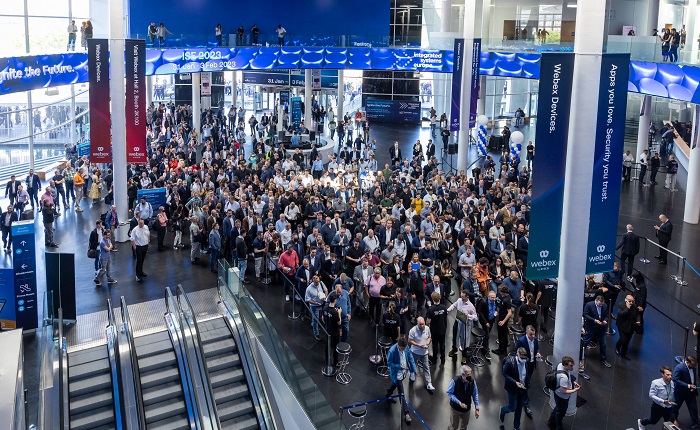
Strata-gee – Talk of some kind of crossover business, Emerald calls it resimercial, has existed for years. But my research suggests it’s a pretty small piece of the pie. Both the resi and commercial spaces are major segments with business driven by large, committed, and focused integrators on each side. Does that agree with how you see the crossover segment?
LUBUSKES – I think there is an overlap area for small commercial installations where a residential firm has the capabilities and expertise to do that from the experience they already have. And I think for tens of years – way before I started at AVIXA – CEDIA and AVIXA respected the professions of each subset [resi and commercial] of the marketplace, and rely on advancing those professions. And for those that try to move from one area to the other, our doors are wide open. We have a ton of CEDIA members that come to our show.
I have a different master than Emerald does. My master is the industry itself. Emerald has shareholders for whom they have to deliver growth.
David Labuskes, CEO of AVIXA, a trade association for commercial integrators
Strata-gee – So it sounds like you are saying that the mechanism already exists to serve those residential integrators who wish to jump into commercial…or those commercial integrators who want to jump into residential. Do you think that having a strong trade group associated with each of these channels, committed to those channels, is an important part of why the system works?
LABUSKES – Look, I come at this from the perspective of running a not-for-profit association for an industry. I deliver trade shows as a part of my ability to be a catalyst for market growth. I deliver trade shows as a physical manifestation of being a hub for the community, for the individuals that practice this profession.
But everything else I do is for those same purposes – our online Xchange community is to do the same exact thing. Our education is to do the same thing. Our industry awareness when we go to various different conferences and audiences saying this is what good AV is…this is how you enhance your brand by investing in AV. All of that is to be a catalyst for market growth.
I have a different master than Emerald does. My master is the industry itself. Emerald has shareholders for whom they have to deliver growth. So, to Emerald, this is just another adjacent market.
Strata-gee – Emerald’s announcement points to the fact that many manufacturers participate in both the residential and commercial segments as another indicator of the need for a combined event. Do you agree with that assessment?
LABUSKES – Look at ISE in Europe. The percentage of attendees at that show that are only doing residential is about 7.8%. And the number of ISE attendees that do only commercial is more than 60% – and that number is growing. So what you have in the middle – the 32% of attendees that says we do both – is actually declining.
So, there is an absolute overlap, but each channel is different. The purchasing decision is different. The end customer’s values and desired outcomes are different. And that’s why even if a manufacturer is serving both marketplaces, they tend to serve both marketplaces with different SKUs with different emphasis on product design and development. And that’s why they have a resi line and a commercial line – because there are two different customer bases and the channel is different and the integrators are different.
Strata-gee – So in my view, the crux of the issue is that this move was a decision made by Emerald, to use the CEDIA Expo to help them get a new commercial show off the ground. This was NOT a decision by CEDIA – the trade association – which no longer owns the CEDIA Expo show. Would you agree with that perspective?
LABUSKES – This is a decision made by Emerald, which is a for-profit tradeshow organizer that also delivers surfing trade shows, skiing trade shows, hospitality design trade shows, and food trade shows. The focus isn’t on a commitment to the trade show industry, the focus is on creating an artificial marketplace within which they can profit. And delivering value in order to do so. I don’t want to be disdainful…I respect profit and I understand the value of it.
So I think it comes down to who’s going to be served by this. What’s the problem that we’re fixing by launching this show – and I don’t see it. Now, of course, I’m biased. I think Infocomm is the greatest trade show in North America focused on AV! But I also think that the demonstrated success of that event, and the continued success of that event, indicates that we’re paying attention to the marketplace. We understand the needs of the exhibitors and the buyers…and that we serve them.
Let’s be really pragmatic on this. I can’t screw up InfoComm and make my money on a surfing trade show…right? Like, I’ve got one industry to do it right in. And so I put everything into doing it right.
I need to know that my two reasons for existence – which again, are a catalyst for market growth…and a hub for the AV profession itself – I have to know that those are at the forefront of everything I do.
Strata-gee – So from your perspective, a combined residential and commercial trade show just doesn’t make any sense?
LABUSKES – So, it would not be something that you would do from a “what is the show or business opportunity” perspective. You would do it from the perspective of “how do we benefit this community most effectively.” And when you look at it through that lens, it seems like a strong Expo is better for the CEDIA residential community – and a strong InfoComm is better for the AVIXA community.
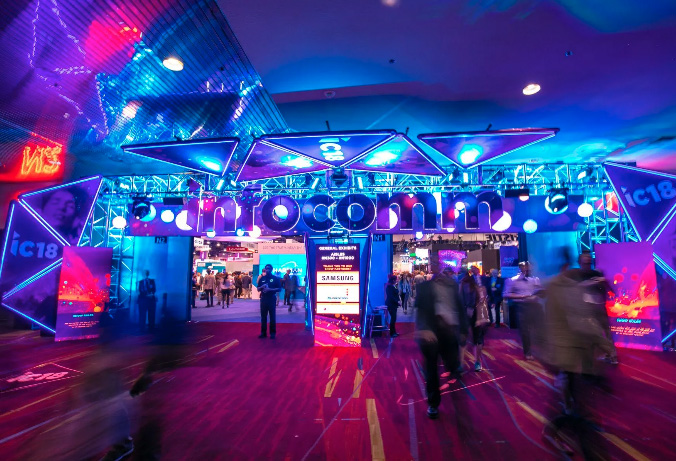
Strata-gee – Any final thoughts on this new industry development?
LABUSKES – CEDIA is certainly not alone as a trade association that has sold off their show. I mean, this is a huge market for for-profit trade show companies. They all are buying trade shows because trade shows can be very profitable. They approach the association that owns the show and say, you’re not a show organizer – we are. You continue to present your content at this event and we’ll take care of running the show.
We’ll give you an endowment, in essence, by buying the show from you. And you continue to have your place of community and we have an opportunity to do what we do – and everybody will win.
That’s the pitch.
The challenge – which you’ve written about – is when you move away from that utopian marriage statement and head towards a divergence of priorities. And this is why I’m not particularly amenable to any consideration of an acquisition of any of our shows. It’s because I can’t afford that divergence of priorities.
I need to know that my two reasons for existence – which again, are a catalyst for market growth…and a hub for the AV profession itself – I have to know that those are at the forefront of everything I do. And that means I have to control the tradeshow, I have to own the content and the experience in order to deliver on that promise
Learn more about AVIXA by visiting avixa.org.




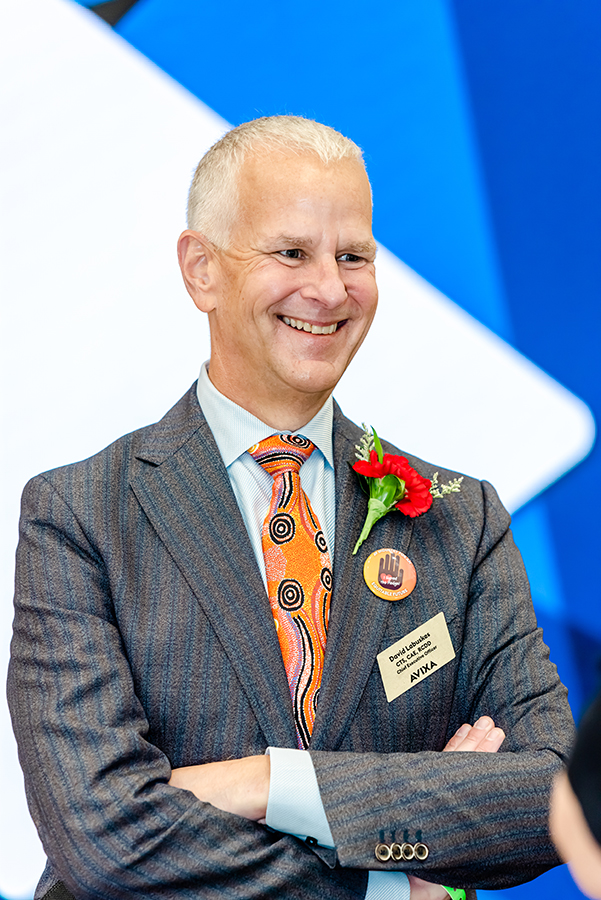
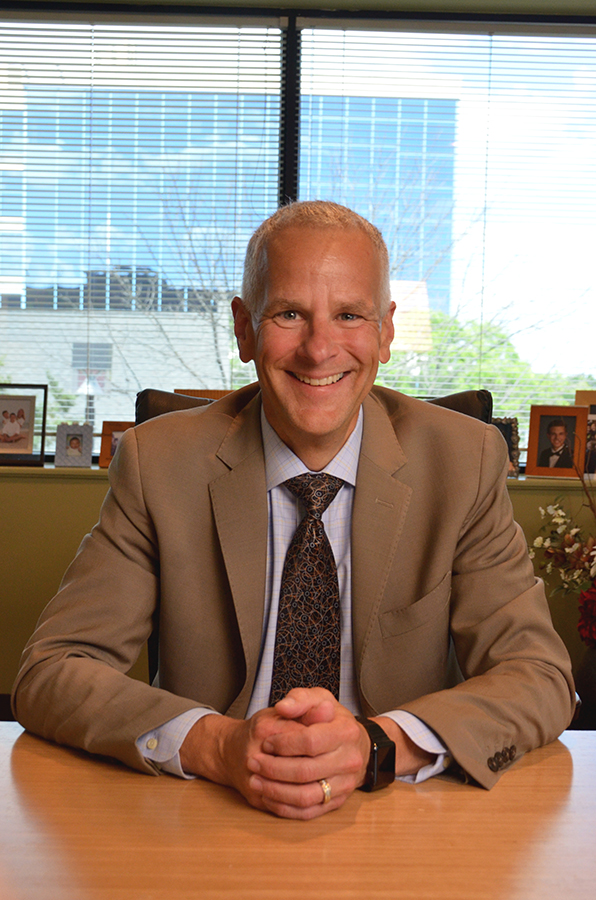


Ted,
What a great interview. David Labuskes, CEO of AVIXA, was an eloquent representative of his mandate as CEO of AVIXA and why the Emerald endeavor smacks of wishful and self interested thinking.
That was a good choice to answer that phone call.
Heck, I waited 10 years for him to call me…wasn’t going to miss my chance! :)
Thanks for the opportunity to share my love for the ProAV community, Ted. And for your kind comments Glendon. Hope to see you at InfoComm!
Wow this was a great interview and I have even more respect for David after reading it as he laid out his position quite logically, respectfully and with data.